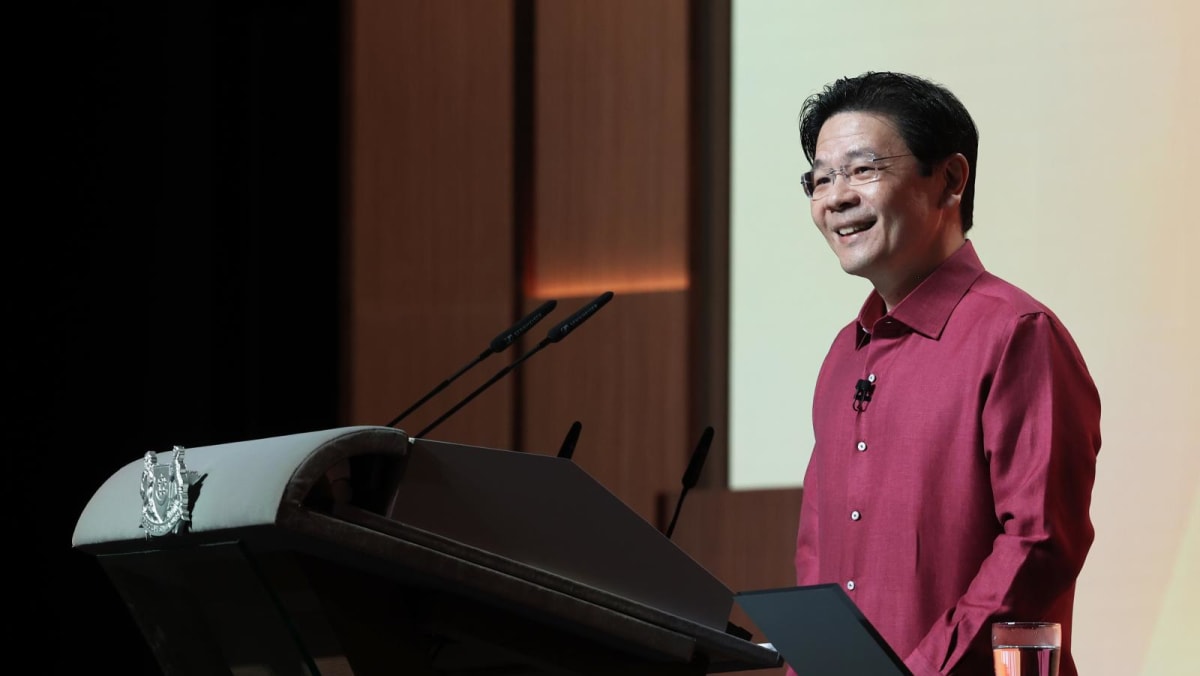Associate Professor Daniel Goh, associate provost for undergraduate education at the National University of Singapore and a former Non-constituency Member of Parliament, said the policies sought to foster inclusive growth, continuing a trajectory set by Senior Minister Lee Hsien Loong when he was Prime Minister and President Tharman Shanmugaratnam when he was in Cabinet.
A DIFFERENT GENERATION
Dr Leong noted that Mr Wong’s approach was “groundbreaking” in its own way, compared to his predecessor Mr Lee.
Back in his first National Day Rally in 2004, Mr Lee had touched on sacred cows such as introducing a five-day work week and introducing the idea of casinos in Singapore.
“I think it’s about reaching out to a different generation of Singaporeans. When then-PM Lee delivered his first NDR, back then you still had a sizeable population who were born before independence. I think the dynamics were quite different to the crowd that PM Wong is reaching out to,” he said.
“The distinctive part is to understand it’s about a new social compact, and tonight we saw the crystallisation of the dialogue in various policies that Singaporeans can connect to, like housing and education.”
Dr Goh noted that Mr Lee was responding to key issues of his time, such as the threat of a stagnating economy after the Asian Financial Crisis and SARS.
Mr Wong is now squarely dealing with hardening social mobility and threat of protracted elitism and durable inequality, with most of Sunday’s announcements targeted at these issues, said Dr Goh.
BOLD MOVES IN POLICIES
One policy in particular which stood out for observers was the move to create a SkillsFuture Jobseeker Support Scheme, to help lower- and middle-income workers who have lost their jobs.
Dr Leong noted that it is “a major shift of direction”, recognising that even the white-collar university-educated workforce may face concerns about the loss of jobs.
“In this day and age, having a job is beyond just about financial compensation, it’s also about a form of recognition and dignity and is entrenched in Singapore culture. The financial assistance is not a lot compared to what you get in a full-time job, but it is important.”
Independent political observer Felix Tan, who has written about Singapore’s electoral and political landscape, called it a surprising move as it is “a shift away from the government’s strict ‘no welfare state’ concept”.
“However, I would also caution against thinking that this would necessarily mean that Singapore is a ‘welfare state’. The financial support schemes for those who have lost their jobs do come with conditions. Therefore, it is not like many developed Western countries where the state provides for its people, come what may,” he said.
Dr Goh noted that the scheme is being placed under the SkillsFuture banner, as it is critical for the monetary support payout of S$6,000 over six months to be complemented by incentives to retrain and reskill.

